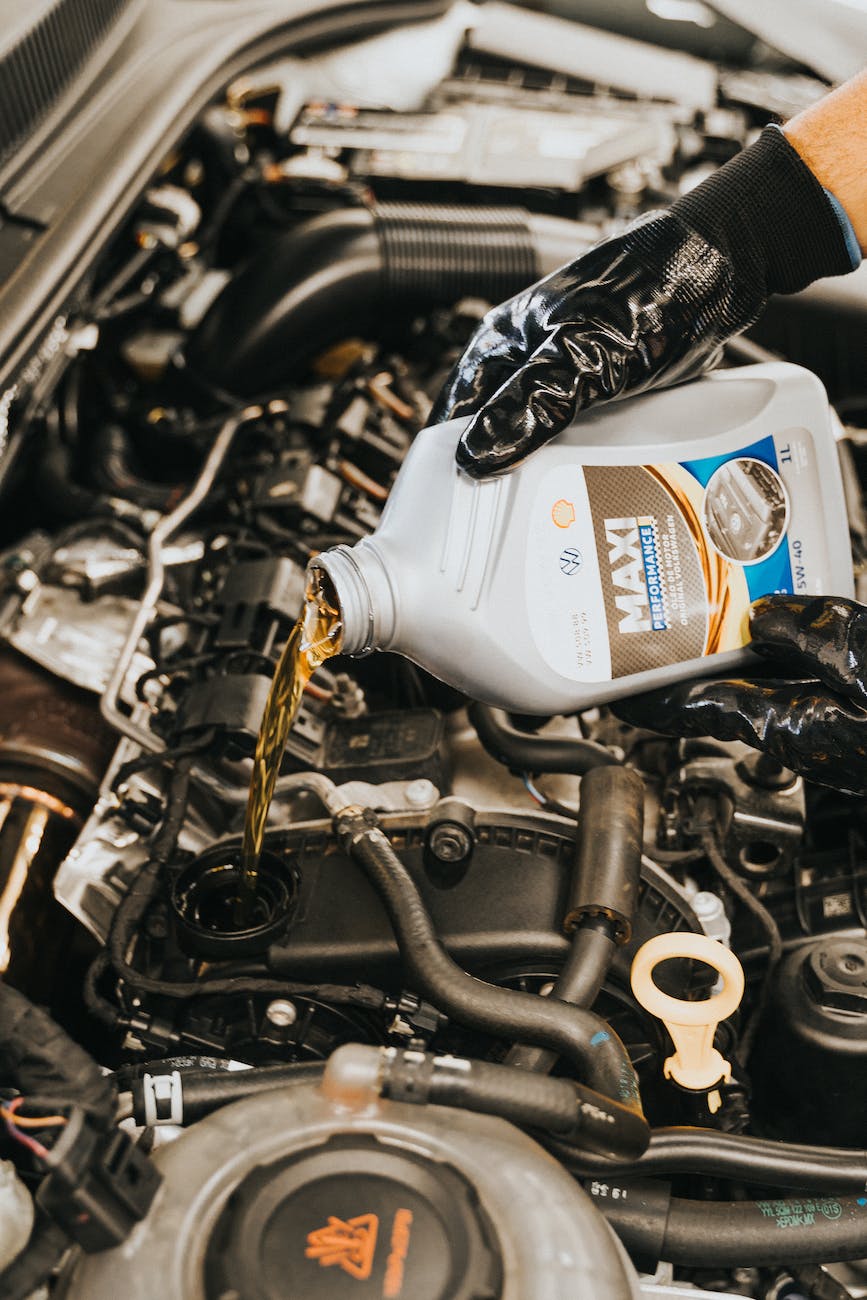The Importance of Regular Oil Changes
To maintain the optimal performance and longevity of your car’s engine, regular oil changes are crucial. Engine oil plays a vital role in keeping your engine running smoothly by providing lubrication and reducing friction between moving parts.
Lubrication and Friction Reduction
Engine oil acts as a lubricant, creating a protective barrier between the metal components within the engine. Without proper lubrication, these components would grind together, resulting in increased friction, heat generation, and accelerated wear (Motul). By reducing friction, engine oil helps to minimize the wear and tear on crucial engine parts, such as the pistons, camshaft, and crankshaft.
Regular oil changes ensure that the engine oil maintains its lubricating properties and effectiveness. Over time, engine oil can become contaminated with dirt, debris, and combustion byproducts, which can compromise its ability to provide adequate lubrication. By replacing the oil at recommended intervals, you can ensure that your engine continues to operate smoothly.
Heat Dissipation and Engine Cooling
In addition to lubrication, engine oil also plays a crucial role in dissipating the immense heat generated during engine operation. The combustion process within the engine produces a significant amount of heat, which, if left unchecked, can lead to overheating and potential damage.
Engine oil absorbs heat from the engine’s internal components and carries it away to the oil pan. From there, it can be further released into the surrounding air through the oil cooler. This heat dissipation process helps to regulate the engine temperature and prevent overheating (Motul).
By having regular oil changes, you ensure that the oil can effectively transfer heat away from the engine components. Over time, the heat-absorbing properties of the oil can degrade, reducing its ability to dissipate heat efficiently. Fresh oil with its proper viscosity and additives helps to maintain optimal engine temperature and prevents potential damage caused by overheating.
Regular oil changes are essential to ensure proper lubrication, friction reduction, and heat dissipation within your car’s engine. By following the recommended oil change intervals and using the appropriate oil type and viscosity, you can keep your engine running smoothly and extend its lifespan. Don’t forget to consult your vehicle’s owner manual or a trusted mechanic to determine the ideal oil change frequency for your specific car model.
Recommended Oil Change Intervals
To ensure the optimal performance and longevity of your car’s engine, regular oil changes are of utmost importance. Engine oil plays a vital role in lubricating and reducing friction between moving parts, as well as dissipating heat and cooling the engine (Motul).
General Guidelines for Oil Change Frequency
The general recommendation for oil change intervals is every 3,000 to 5,000 miles or every 3 to 6 months, whichever comes first. This guideline provides a good baseline for most vehicles (Performance Honda Store). However, it’s important to note that the specific requirements may vary depending on factors such as the car’s make and model, driving conditions, and the type of oil used.
Older vehicles and those subjected to more severe driving conditions, such as frequent stop-and-go traffic, towing, or driving in extreme temperatures, may require more frequent oil changes. These conditions can cause the engine oil to degrade more quickly, reducing its effectiveness in providing proper lubrication and heat dissipation (Performance Honda Store).
It’s always recommended to consult your car’s owner manual or contact a certified mechanic for specific oil change recommendations tailored to your vehicle.
Factors Affecting Oil Change Frequency
Several factors can influence the frequency at which you should change your engine oil. Here are some key considerations:
- Driving Conditions: If you frequently drive in severe conditions, such as dusty or off-road environments, or if you frequently engage in towing or heavy hauling, your engine may require more frequent oil changes to compensate for the added stress and potential contamination.
- Oil Type: Different types of oil, such as conventional, synthetic, or high-mileage oil, have varying performance characteristics and recommended change intervals. Synthetic oils, for example, generally offer better protection and longevity, allowing for extended oil change intervals. However, it’s important to follow the manufacturer’s guidelines and recommendations for your specific oil type.
- Manufacturer Recommendations: Car manufacturers often provide oil change recommendations tailored to their vehicles. These recommendations take into account factors like engine design, performance specifications, and oil compatibility. Adhering to the manufacturer’s recommendations can help maintain optimal engine performance and warranty coverage.
- Oil Analysis: Some car owners choose to have their engine oil analyzed by specialized laboratories. This process involves examining the oil’s composition and identifying any potential issues or contaminants. Oil analysis can provide valuable insights into the condition of your engine and help determine if an oil change is necessary before the recommended interval.
By considering these factors and staying proactive with regular oil changes, you can ensure that your engine remains properly lubricated, cooled, and protected, extending its lifespan and maximizing performance. For convenient and reliable oil change services, you can explore options such as oil change near me or express oil change.
Consequences of Neglecting Oil Changes
Regularly changing the engine oil is vital for maintaining the health and performance of your vehicle. Neglecting oil changes can have significant consequences, including increased engine wear and damage, as well as decreased fuel efficiency and performance.
Increased Engine Wear and Damage
Over time, engine oil becomes contaminated with dirt, debris, and harmful particles that accumulate during the normal operation of your vehicle. If the oil is not changed regularly, these contaminants can build up and form sludge and deposits that can clog the engine’s components. This can lead to increased friction and wear on critical engine parts, such as pistons, cylinders, and bearings. As a result, the engine may experience reduced performance, increased noise, and potential engine failure (Schulz Garage).
Regular oil changes help to remove these harmful contaminants and maintain proper engine lubrication. By providing clean oil, the engine parts can move smoothly and efficiently, reducing friction and minimizing wear and tear. This not only extends the life of your engine but also improves overall vehicle performance.
Decreased Fuel Efficiency and Performance
Neglecting regular oil changes can also impact your vehicle’s fuel efficiency and performance. As engine oil ages, it loses its ability to effectively lubricate and protect the engine components. This can result in increased friction and heat generation within the engine, leading to decreased fuel efficiency. Inefficient lubrication can also cause the engine to work harder, resulting in reduced power and performance (Performance Honda Store).
Regularly changing the engine oil helps to maintain optimal lubrication, allowing the engine to operate more efficiently. With clean and properly lubricated engine parts, the vehicle can achieve better fuel economy and performance. It’s worth noting that using the recommended oil type and viscosity, as specified by the vehicle manufacturer, is crucial for maximizing fuel efficiency and performance.
To ensure the longevity and reliability of your vehicle, it’s essential to follow the recommended oil change intervals and have the oil changed by a professional service provider. By doing so, you can minimize the risk of engine wear, maintain optimal fuel efficiency, and enjoy peak performance from your vehicle. For more information on oil change services and finding the best oil change near you, check out our article on oil change services.
The Process of Changing Engine Oil
When it comes to maintaining your vehicle’s engine, a crucial aspect is performing regular oil changes. The process of changing engine oil involves three main steps: draining the old oil, replacing the oil filter, and adding fresh oil to the engine.
Draining the Old Oil
The first step in the oil change process is to drain the old oil from the engine. This is typically done by removing the drain plug located on the oil pan. It’s important to place a drain pan underneath to catch the old oil and prevent any spills. Allow the oil to fully drain from the engine before proceeding to the next step.
Replacing the Oil Filter
While draining the oil, it’s also essential to replace the oil filter. The oil filter plays a crucial role in removing impurities and contaminants from the oil, ensuring that only clean oil circulates through the engine. To replace the oil filter, locate the filter housing, typically found on the side or underside of the engine. Carefully remove the old filter and replace it with a new one, making sure to lubricate the gasket with fresh oil before installation.
Adding Fresh Oil
Once the old oil has been drained and the oil filter replaced, it’s time to add fresh oil to the engine. Refer to the vehicle’s owner’s manual or the manufacturer’s recommendations to determine the appropriate type and viscosity of oil to use. Use a funnel to pour the oil into the engine through the oil filler cap, taking care not to overfill. Check the oil level using the dipstick to ensure it is within the recommended range.
Properly disposing of the old oil and filter is crucial for environmental safety. Many local auto parts stores and service centers offer oil recycling services, allowing you to dispose of the old oil and filter responsibly.
Remember, the process of changing engine oil can vary slightly depending on the make and model of your vehicle. If you’re unsure or prefer to have a professional handle the oil change, consider visiting a trusted oil change service near you.
By following these steps and staying consistent with your oil change schedule, you can help maintain the health and performance of your vehicle’s engine. Regular oil changes not only prolong the life of your engine but also contribute to better fuel efficiency and overall performance. Don’t forget to check your vehicle’s owner’s manual for specific oil change recommendations and intervals for your particular vehicle.
Choosing the Right Engine Oil
When it comes to engine oil change, selecting the appropriate oil for your vehicle is essential for optimal engine performance and longevity. In this section, we will discuss the importance of using the recommended oil type and viscosity, as well as the benefits of full synthetic engine oils.
Importance of Using Recommended Oil Type and Viscosity
Each vehicle manufacturer specifies the type and viscosity of oil that best suits their engines. It is crucial to follow these recommendations to ensure proper lubrication and protection. Using the wrong type or viscosity of oil can result in engine damage, decreased performance, and potential warranty issues.
The recommended oil type is typically indicated in your vehicle’s owner’s manual. It may specify conventional oil, synthetic oil, or a synthetic blend, depending on the engine’s requirements. Synthetic oils, including full synthetic engine oils, offer several advantages over conventional oils. They are engineered to increase the performance of today’s more precision-built and hotter-running engines, meet fuel efficiency standards, and comply with emissions regulations (Kendall Motor Oil).
The viscosity of oil refers to its resistance to flow at different temperatures. It is denoted by a numerical value followed by the letter “W” (e.g., 5W-30). The “W” stands for winter, indicating the oil’s cold temperature performance. The first number represents the oil’s flowability at low temperatures, while the second number represents its viscosity at high temperatures. Choosing the right viscosity ensures proper lubrication and protects against engine wear in various weather conditions.
Benefits of Full Synthetic Engine Oils
Full synthetic engine oils offer numerous advantages over conventional oils and even synthetic blends. They are formulated with advanced additives and a high-quality synthetic base oil to provide superior performance and protection.
Here are some benefits of using full synthetic engine oils:
- Better Protection: Full synthetic engine oils provide better wear protection, helping to extend the life of your engine components. They form a strong lubricating film that withstands extreme temperatures and reduces friction, preventing metal-to-metal contact.
- Improved Fuel Efficiency: Synthetic oils have lower friction coefficients than conventional oils, which can lead to improved fuel efficiency. The reduced internal friction allows the engine to operate more efficiently, potentially enhancing gas mileage.
- Enhanced Performance: Full synthetic engine oils maintain their viscosity in a wide range of temperatures, ensuring optimal lubrication and protection across different operating conditions. They flow quickly in winter temperatures, protecting critical engine parts during cold starts, and remain stable at high temperatures, providing continued protection under extreme heat.
- Cleaner Engines: Synthetic engine oils contain chemical detergents and additives that resist the buildup of deposits, resulting in cleaner engines that run smoother, more efficiently, and longer than those with dirty, congested internals (Kendall Motor Oil).
- Suitability for Turbocharged Engines: Turbocharged engines require specific oils that can flow quickly and withstand high temperatures generated by the turbocharger. Full synthetic engine oils are designed to perform under extreme conditions, making them well-suited for turbocharged engines.
By adhering to the recommended oil type and viscosity, and considering the benefits of full synthetic engine oils, you can help ensure optimal engine performance, protection, and longevity. Remember to consult your vehicle’s owner’s manual or seek professional advice to determine the right oil for your specific make and model.
Signs Your Car Needs an Oil Change
To maintain the optimal performance and longevity of your vehicle, it’s crucial to be aware of the signs that indicate your car is due for an oil change. Regular oil changes are essential for lubricating the engine, reducing friction, and dissipating heat. Here are some indicators that it’s time to schedule an oil change:
Oil Change Light and Check Engine Light
Modern vehicles are equipped with an oil change light or a check engine light that illuminates when there’s insufficient oil in the system. If you notice these warning lights on your dashboard, it’s a clear indication that your car needs an oil change. To confirm the oil level, you can check the dipstick, which is a long, thin rod located under the hood. If the oil level is below the recommended range, it’s time to schedule an oil change.
Increased Engine Noise
Oil plays a crucial role in providing a protective layer between engine parts, minimizing metal-to-metal contact and keeping the engine quiet. When the oil is old or dirty, it becomes less effective, resulting in increased engine noise. You may notice louder engine sounds, and in severe cases, knocking or rumbling noises that indicate potential damage due to lack of lubrication. If you experience unusual engine noise, it’s advisable to have an oil change to restore proper lubrication and quiet operation.
Checking Oil Color and Consistency
Regularly checking the color and consistency of your engine oil can provide insights into its condition. Clean oil is usually amber in color and slightly translucent. However, as the oil ages and collects particles from the engine, it becomes darker and less transparent. To check your oil, remove the dipstick, wipe it off, and reinsert it into the oil tank. Remove it again and observe the oil on the dipstick. If you can’t see the dipstick through the oil, or if the oil appears excessively dark, it’s an indication that it’s time for an oil change. By maintaining clean oil, you ensure that your engine is properly protected and lubricated.
Remember, these signs of needing an oil change are general guidelines. Always consult your vehicle’s owner manual for the manufacturer’s recommended oil change intervals and follow them accordingly. Regular oil changes not only help prolong the life of your engine but also contribute to improved fuel efficiency and overall performance.
Additional Indicators of Oil Issues
In addition to the signs discussed earlier, there are a couple of other indicators that can suggest potential oil issues in your car. It’s important to be aware of these signs as they may require immediate attention to prevent further damage.
Smell of Oil Inside the Car
If you notice a strong smell of oil inside your car, it can often signify an oil leak. The scent of oil permeating the interior of your vehicle could indicate a problem with the engine or other components. In some cases, this smell might be accompanied by the smell of gas or exhaust fumes, which could be a sign of overheating. If you experience these odors, it’s crucial to schedule maintenance immediately to address any potential issues (Machinery Lubrication).
Smoke from the Tailpipe
While it’s normal for translucent vapor to come out of your car’s tailpipe, if you notice a significant increase in smoke, it’s time for an engine check-up. Smoke from the tailpipe can be an indication of faulty engine parts or an oil leak. It’s important not to ignore this sign, as it could be a symptom of a more serious problem (Machinery Lubrication).
If you encounter either of these indicators, it’s crucial to address the issue promptly. Contact a trusted mechanic or schedule an appointment with an oil change service near you to diagnose and resolve any potential oil-related problems. Regular maintenance and timely oil changes can help prevent these issues and keep your engine running smoothly.







